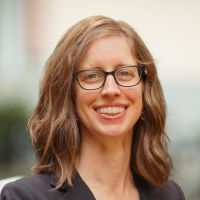Professional associations provide opportunities for learning, networking, and growth for workers in fields as diverse as medicine, construction, and sales. For university faculty, disciplinary societies in biology, economics, psychology, and many other fields provide support throughout their careers—stimulating new ideas, fostering collaborations, and serving as a place to cultivate community and identity. How can these supports be more accessible to faculty teaching in community colleges? This was the premise of a 2023 virtual workshop Fostering Two-Year College Collaborations with Disciplinary Societies that brought together more than 60 two-year college faculty and representatives from 11 disciplinary societies to create action plans for increased collaboration and engagement. The outcomes and activities of the workshop, which was hosted by the Science Education Resource Center at Carleton College, are summarized in a new report.
The barriers to community college faculty engagement in disciplinary societies are cultural and structural. Community colleges have few resources to financially support professional memberships and attendance at national conferences. Many community colleges engage in professional and membership organizations like NISOD, the League for Innovation, and Achieving the Dream that are focused on student success and are not discipline-specific. And some disciplinary societies may be perceived as unwelcoming or irrelevant to faculty at community colleges and other teaching institutions.
Yet, there are mutual benefits to community college faculty engagement in disciplinary societies. The professional community fostered by disciplinary societies may offer an antidote to the isolation experienced by many community college faculty (particularly in small departments). These discipline-specific communities provide opportunities for community college faculty to discuss challenges and share strategies that could lead to improved course pass rates and program persistence. Conversely, disciplinary societies need community college faculty’s expertise on the foundational curriculum and teaching diverse college students. To expand and diversify the students entering their fields, disciplinary societies can look to community colleges. And many societies need to increase their membership to remain viable in challenging times.
Strategies to Build Collaboration
Through their participation in the workshop, teams of disciplinary society representatives and community college faculty identified a goal and action steps for increasing engagement of community college faculty in their discipline. For example, in geoscience, a field that includes several disciplinary societies, the team’s planned activities include collecting data on participation of community college faculty and students at disciplinary society meetings, surveying community college faculty to determine barriers to participation, and exploring the possibility of a tiered membership and reduced conference registration fees for community college faculty. During the workshop period, the American Geophysical Union’s Education Section established and filled a standing community college representative position to ensure community college faculty perspectives are shared in that forum.
In sociology, the team’s plan includes proposing a “Community College Community” within the American Sociology Association (ASA) Council. ASA Communities are member-generated groups. Once the Community is approved, the team plans to promote it through their regional associations, the Section on Teaching/Learning, and other existing email lists. In addition, the team is building on previous efforts to identify what types of programming and content will meet the needs of community college faculty.
In concert with identifying a range of creative structural strategies to promote community college faculty engagement (e.g., new leadership structures, travel funds, and regional and virtual programming), teams also identified opportunities for cultural change to make societies more inclusive. Community college faculty may not feel a sense of belonging in their disciplinary society. Without a clear articulation of value, they are unlikely to invest precious time and resources to engage with the society.
To address these challenges, workshop participants identified strategies to elevate the influence and amplify the voice of community college faculty in their disciplinary societies. These include creating pathways to leadership roles, inviting community college faculty to write for disciplinary society publications, and emphasizing the expertise and valued perspectives that community college faculty bring to the discipline and the society. To improve disciplinary society programming as well as their marketing approaches, several teams planned to survey community college faculty and document their perspectives in listening sessions and roundtables.
Changing Beliefs and Practices to Overcome Barriers
In their final workshop evaluations, participants reported on their successes as well as the anticipated barriers to future work. Faculty time was cited as a significant challenge, particularly in community colleges where instructors have heavy teaching loads and service responsibilities. Thus several participants wondered how to garner institutional support for faculty engagement in disciplinary societies. If community colleges see how disciplinary societies support curriculum development, teaching excellence, and faculty satisfaction, then institutions will be incentivized to support faculty participation as part of their broader student success initiatives. If disciplinary society membership, leadership, and participation is not valued or well-understood by community college leaders, then faculty engagement is likely to be limited and unsustainable.
The work of building strong engagement between community colleges and disciplinary societies is ongoing and involves changing the beliefs and practices of many stakeholder groups: society staff and leaders, funders, faculty at two- and four-year institutions, and community college leaders. The potential payoff for change is great: community college faculty who are more connected and well-supported, community college instruction grounded in the most up-to-date content and teaching practices, and disciplinary societies with vibrant and diverse memberships.





